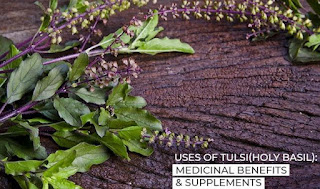
Coenzyme Q10 (CoQ10) is an antioxidant that your body
produces naturally. Your cells use CoQ10 for growth and maintenance.
Coenzyme Q10 (CoQ10) is a nutrient that occurs
naturally in the body. CoQ10 is also in many foods we eat. CoQ10 protects cells
from damage and plays an important part in the metabolism.
When we are young, our bodies naturally make plenty of coenzyme
Q10 that helps create the energy our bodies need. But as we age, our bodies
produce less & less of this important enzyme. It can be challenging to
obtain CoQ10 from the diet alone as it is available in trace amount in food.
What does an antioxidant do?
Antioxidants are substances that may protect your cells against
free radicals, which may play a role in heart disease, cancer, and other
diseases. Free radicals are molecules produced when your body breaks down food
or when you're exposed to tobacco smoke or radiation.
What is the basic definition of nutrients?
Nutrients are chemical compounds in food that are used by the
body to function properly and maintain health.
Examples include proteins, fats, carbohydrates, vitamins, and
minerals.
Levels of CoQ10 in your body decrease as you age. CoQ10 levels
have also been found to be lower in people with certain conditions, such as
heart disease, and in those who take cholesterol-lowering drugs called statins.
CoQ10 is found in meat, fish and nuts. The amount of CoQ10 found
in these dietary sources, however, isn't enough to significantly increase CoQ10
levels in your body.
Statins are drugs that can lower your cholesterol. They work by
blocking a substance your body needs to make cholesterol.
Lowering cholesterol isn't the only benefit associated with
statins. These medications have also been linked to a lower risk of heart
disease and stroke. These drugs may help stabilize the plaques on blood vessel
walls and reduce the risk of certain blood clots.
Benefits of CoQ10
Ø Improving heart
health
Ø Reducing muscle pain
from statin use
Ø Treating migraines
Ø Protecting against
age-related diseases
Ø Risks of too much
CoQ10
CoQ10 supplements appear to be safe, and most people tolerate
them even at high doses.
CoQ10 supplements can cause the following side effects:
Ø nausea
Ø stomach pain
Ø heartburn
Ø headache
Ø dizziness
Ø fatigue
Ø light sensitivity
Ø insomnia
Ø skin rash
How much CoQ10 should you take?
There is no established ideal dose of CoQ10. Studies have used
doses of CoQ10 ranging from 50 milligrams to 1,200 milligrams in adults,
sometimes split into several doses over the course of a day. A typical daily
dose is 100 milligrams to 200 milligrams. Follow the instructions on the bottle
or get advice from your doctor or a dietitian. Keep in mind that different
supplement brands might have different ingredients and strengths.
Can you get CoQ10 naturally from foods?
The amounts of CoQ10 in found naturally in food is much lower
than that found in supplements. Good food sources of CoQ10 include:
Ø Cold water fish, like
tuna, salmon, mackerel, and sardines
Ø Vegetable oils
Ø Meats
What are the risks of taking CoQ10?
Ø Side effects from
CoQ10 seem to be rare and mild. They include diarrhea, nausea, and heartburn.
Ø People with chronic
diseases such as heart failure, kidney or liver problems, or diabetes should be
wary of using this supplement. CoQ10 may lower blood sugar levels and blood
pressure.
Ø Interactions. People
taking blood thinners and thyroid medications as well as chemotherapy should
check with their doctors before using CoQ10 supplements.
Given the lack of evidence about its safety, CoQ10 supplements are
not recommended for children or for women who are pregnant or breastfeeding.
Nutrilite Coenzyme Q10 citrus concentrate complex comprises of coenzyme
Q10 which supports the energy production in cell, is an antioxidant and
supports healthy heart and every other cell in our body.
The Coenzyme Q10 used in this product is the best form of CoQ10
which is fast absorbing. Citrus bioflavonoids provide additional benefits of
phytonutrients.
Phytonutrients are natural chemicals or compounds produced by
plants. They keep plants healthy, protecting them from insects and the sun.
SUGGESTED USE
Take 4 capsules daily, preferably with a meal and in divided
servings.







